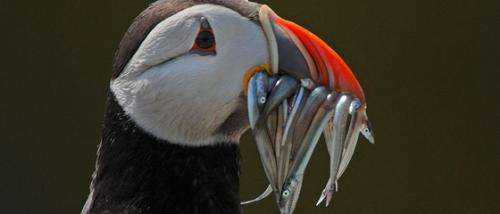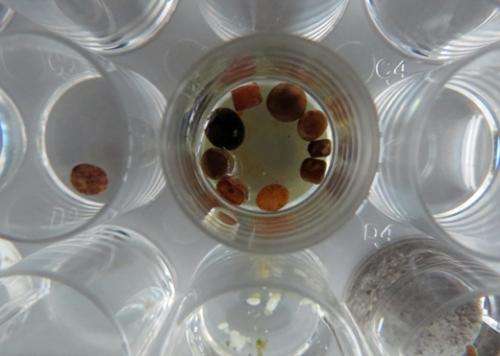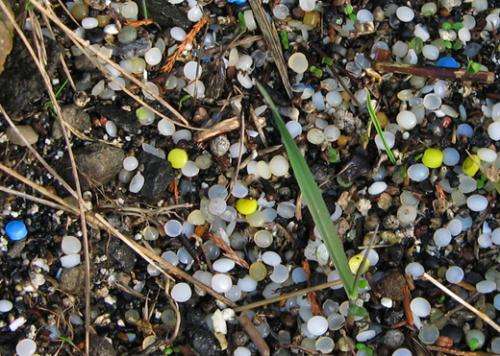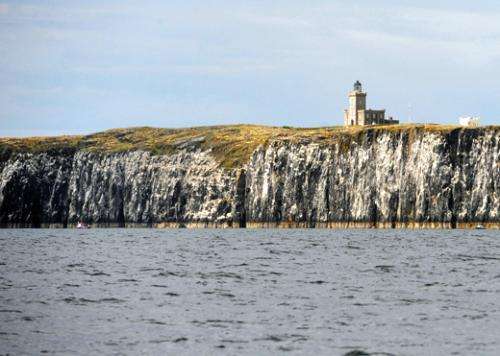Scottish puffins found with plastic pellets in their stomachs

Autopsies of dead puffins collected from the Isle of May in Scotland have revealed that, along with their usual diet of sand eels, these charismatic seabirds have been eating plastic pellets, known as nurdles.
As Mark Newell from the Centre for Ecology and Hydrology (where the autopsies were performed) explained, "We regularly collect puffins found dead on the island to help us monitor the health of the population. As part of this research we look at what they have been eating. At first we didn't know what the strange pieces of plastic were, but we found them in a number of the puffins' stomachs. When The Great Nurdle Hunt contacted us asking if we had found any small plastic pellets in the seabirds we were studying, I realised they were nurdles."
Hunting for nurdles
Nurdles are the plastic industry's raw material, and are melted together to create nearly all of the plastic products we use. Accidental spills mean billions of these pellets now litter the world's oceans – and Scotland's east coast is no exception.
The Great Nurdle Hunt is a community-based movement in Scotland that is monitoring the accumulation of nurdles in the Firth of Forth and campaigning to reduce industrial plastic pollution in this ecologically-important area. Fauna & Flora International is supporting this work by providing technical assistance and advice to the group through its marine plastics programme.
Tom Brock OBE, Chief Executive of the Scottish Seabird Centre, said, "The Isle of May is of international importance for puffins, and soon tens of thousands of them will return for the start of the breeding season. To hear of puffins ingesting nurdles in the Firth of Forth is very alarming news. Not only can nurdles get trapped in their stomach but the toxic chemicals on the surface of the plastic may have terrible repercussions. It is vital that we all do what we can to resolve this issue."

According to Iain Rennick, Scottish Natural Heritage's Unit Manager for Forth, "The Isle of May attracts around 250,000 seabirds each year making it one of Scotland's largest breeding seabird colonies. It also has one of the UK's largest breeding populations of puffins. While we don't fully understand all the impacts they have, nurdles and other marine litter are a real threat to all our marine wildlife. It's important to do all we can to keep our seas clean and litter-free."
For almost a year, locals from around the Forth and beyond have been scouring the coast, looking for nurdles and reporting their findings to The Great Nurdle Hunt.
"It's clear from the sightings that there is a serious problem around the Forth," said Great Nurdle Hunt Project Leader, Cathy Sexton. "They are turning up on most of our beaches, and some parts of the estuary are littered with thousands of them.

"We have contacted the plastics companies around the Forth and – using the public sightings – have shown them the impact nurdles are having on the local environment. By adopting simple changes to their operations, local companies that manufacture, transport or use nurdles can prevent any risk of spills ending up in the estuary.
"I am pleased to say that as a result we are now in discussion with a number of those companies who are keen to help keep nurdles out of the Forth. However the discovery on the Isle of May – one of the Forth's National Nature Reserves – is a disturbing and serious reminder of the effects nurdles are having on wildlife and the pressing need for industry to act to prevent more seabirds from being affected."

Provided by Fauna & Flora International














